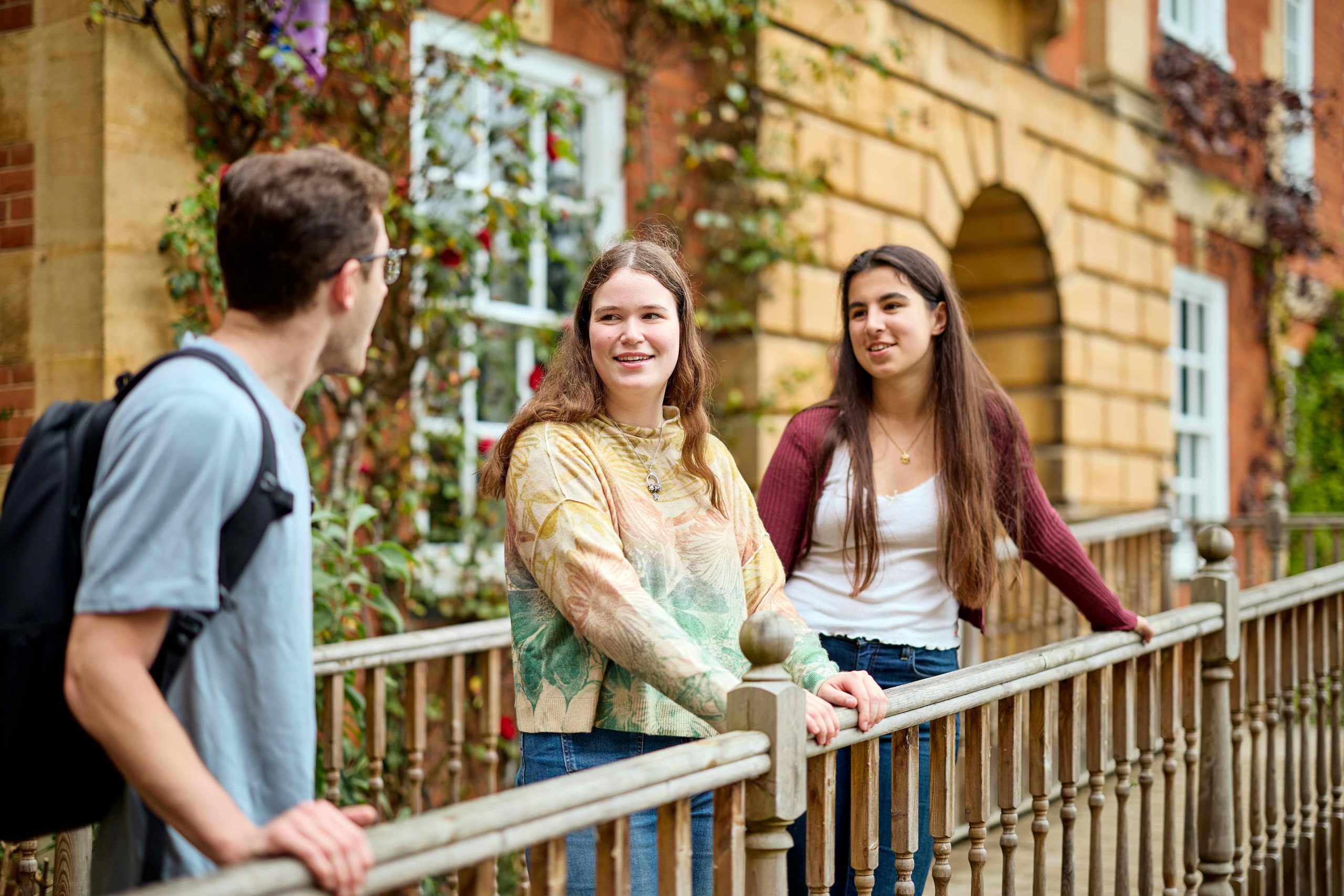
Radical Modernism: British Art and Literature from the Pre-Raphaelites to the Bloomsbury Group
Radical Modernism: British Art and Literature from the Pre-Raphaelites to the Bloomsbury Group summer course in Oxford, by Lady Margaret Hall University of Oxford.
- Duration
- Duration: 3 Weeks
- Dates
- Dates: June - August 2026
- Age Range
- Age Range: 19+
- Fees
- Fees from: £4,384.00
Course Summary
From the late 19th into the 20th century, British artists and academics set out to radically transform art, literature, and society. Originating alongside the Oxford Movement, the Pre-Raphaelite brotherhood believed in a new medievalism, which infused their paintings, poetry, and way of life. Emerging in the wake of the Romantics and Impressionists, artists like Edward Burne-Jones, Williams Morris, John Everett Millais, Dante Gabriel Rosetti and William Holman Hunt, produced extraordinary artworks rooted in new ways of seeing truth and beauty. They received the support of Oxford thinkers like John Ruskin, who championed their vision and wrote highly influential art criticism. Their radical legacy continued with Slade artists like David Bomberg, Paul Nash, and Stanley Spencer, who embraced Surrealism and Cubism while confronting the horrors of war. The Bloomsbury Group, with writers like Virginia Woolf and Roger Fry, and painters like Vanessa Bell and Duncan Grant, celebrated ‘art for art’s sake’ and rejected bourgeois, conventional expectations.
In this very special course, students benefit from access to and engagement with the extraordinary collection in the Ashmolean and other local sites, learning from direct encounters with treasures of modern British art. With lectures will be delivered by Oxford academics and field-leading experts, you will examine the art and literature of the period and take part in unique site visits. You also have the opportunity to visit auction houses and galleries to learn from specialists about the art world today and the place of British modernism in the contemporary market.
Course Highlights
- Live and study in Lady Margaret Hall, one of Oxford's finest colleges
- Learn from experienced academics using the tutorial system
- Enjoy meals in hall, experiencing life as an Oxford student
- Gain new skills to take you further in your future academic or professional career.
Video
What's Included?
- All tuition, including lectures, seminars, and tutorials
- Assessment, transcript of academic performance, and certificate
- A co-curricular programme of skills workshops and guest speakers
- Access to the Lady Margaret Hall College Library
- Bed & Breakfast accommodation in a single bedroom throughout your programme
- Lunch and dinner in the College Dining Hall Monday to Friday
- A full Social & Cultural Programme, including two excursions to other English cities per three-week programme session
- A high-quality printed class photograph
- Formal Graduation banquet
Academics & Extracurriculars
Teaching:
LMH Summer Programmes are designed and delivered by experienced academics from Lady Margaret Hall and across the University of Oxford, and are taught using the Oxford teaching model, which emphasises personalised small-group learning.
In a series of thought-provoking lectures and lively seminar discussions you will learn about cutting-edge research, expand your core knowledge, and explore new ideas and concepts among peers with diverse international perspectives and academic backgrounds.
Tutorials, the conclusion of each week’s study, are an intellectual thrill. They are a unique opportunity for focused and personalised attention from an expert academic and a space for enthusiastic debate of important ideas. Alongside no more than two to three other students, you will present and discuss your work, accept constructive criticism, and engage with the ideas of your fellow students. These rigorous academic discussions help develop and facilitate learning in a way that cannot be done with lectures alone.
Assessment:
On a three-week LMH Summer Programme students produce one piece of assessed work every week, which is submitted to the tutor and then discussed in a tutorial. At the end of each week you will receive a percentage grade for your submitted work. Each week’s work counts for a third of your final percentage grade, so your final grade is an average of the mark received for each piece of work. Students who stay for six or nine weeks will receive a separate grade for each 3-week course.
Academic Credit:
Lady Margaret Hall will provide a transcript of your assessed work, and can send this directly to your home institution if required. LMH Summer Programmes are designed to be eligible for academic credit, and we will communicate with your home institution to facilitate this as needed. As a guide, we recommend the award of 15 CATS / 7.5 ECTS / 4 US Credits for each 3-week course.
Learn more on the official Lady Margaret Hall University of Oxford website .
Need More Information?
Lady Margaret Hall University of Oxford Frequently Asked Questions
Frequently Asked Questions
More about us and responses to frequently asked questions
Still have questions? See the full FAQs page.

Related Courses
Climate Law and Policy
Perhaps the greatest challenge facing humankind is anthropogenic climate change, the rapid warming of the earth’s temperature driven by the...
Classical Civilisation (18-24 years old)
The Classical Civilisation summer school at Oxford Summer Courses, designed for 18-24 years old students, provides tutorials and is priced...
General English for the Modern World (Adults)
This course develops advanced English grammar, syntax, pronunciation, and colloquial skills in speaking, listening, reading, and writing. Taught by British...
Law (18-24 years old)
The Law summer school at Oxford Summer Courses, designed for 18-24 years old students, provides tutorials and is priced from...